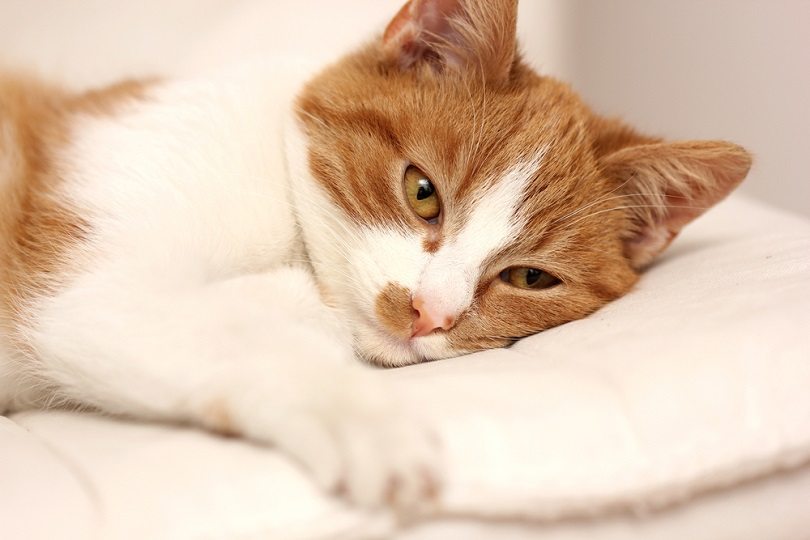Neem oil is the current trending natural remedy of the month, being touted for everything from insect repellent to treatment for ringworm. Anecdotes of its use on pets have been reported, but vets are not so quick to jump on the bandwagon. While veterinarians say it may be helpful for some animals, there are limits to what it can do, and doing so carries risks not present when using pharmaceuticals1. Unless your vet recommends it, we would keep neem oil away from cats as it can be dangerous to use on pets.
Keep reading to learn everything you need about Neem oil and cats.
What Is Neem Oil?
Neem oil is a carrier oil extracted from the neem. Azadirachta indica, or the neem, is a tree native to Sri Lanka, Burma, and India, though it is now grown in tropical regions worldwide. Ayurvedic practitioners use various parts of the tree to treat illnesses, according to Dr. Lisa Pinn McFaddin from the Independent Hill Veterinary Clinic in Manassas, Virginia.
While Ayurvedic practitioners use the whole tree, only the oil extracted from the tree has caught on in the West. Over here, we use the oil extracted from the seeds, typically in a topical application. The oil is generally extracted using a process called “cold pressing,” where the oil is extracted without using heat. Cold-pressed oils tend to be purer than oils expressed using heat.

Why Is Neem Oil So Popular?
Neem oil contains essential nutrients like omega-6 and omega-9 fatty acids and vitamin E. Still, Pinn McFaddin says that the primary benefits can be attributed to triterpenes—a chemical compound found in plants and animals that helps them handle cases of inflammation.
According to Dr. Melissa Shelton, a holistic veterinarian and clinic owner, “The most common triterpenes are azadirachtin and Nimbin.” She further elaborates that azadirachtin is a potent insecticide, to which neem oil owes its reputation as an insect repellent, and Nimbin has anti-inflammatory, antiseptic, antifungal, antihistamine, and even fever-reducing properties.
However, she also says that many people have difficulty working with pure oil, and this, combined with neem oil’s strong smell, makes many people give up on it. Experts on the oil say that it smells like garlic, even when diluted. So, if strong smells are a deal-breaker for you, you might want to pass on it.
Risks of Using Neem Oil on Cats
So long as your neem oil is given in the proper concentration, it shouldn’t pose an inherent risk to your cat. The ASPCA does not list neem oil as a toxic substance for cats. Still, this is a relatively new thing for the West, and veterinarians warn against using the oil on your pets without a vet’s guidance.
Other risks of using neem oil on pets include interactions with insulin, oral diabetic medication, and thyroid hormone supplements. If your cat takes any medications, ensure that you check with your vet before using neem oil on it; using neem oil could make its medication less effective.
Also, overdosing on neem oil can cause your cat to become ill. If you aren’t already knowledgeable about diluting neem oil for your cat, consult your veterinarian to ensure they know your plans. If something goes wrong, your vet has somewhere to start their evaluations.

Final Thoughts
While neem oil might seem like an excellent home remedy for just about anything, it can be dangerous to use on pets, and we don’t advise doing so unless you’ve consulted your veterinarian. If your veterinarian oversees your use of neem oil on your cat, you will be armed with all the knowledge you need to keep your cat safe.
Featured Image Credit: Mukesh Kumar, Shutterstock











